Big budget open world action games have hit a wall. Over and over again we’re seeing the same thing: the worlds keep getting bigger and more technically impressive, but the things we’re doing within them aren’t evolving.
Major releases like Ghost of Tsushima, Star Wars Outlaws, and Hogwarts Legacy keep running into the same problem: spectacular worlds that either feel over-stuffed with filler, or oddly empty. No one knows what to put in these incredible digital sandboxes.
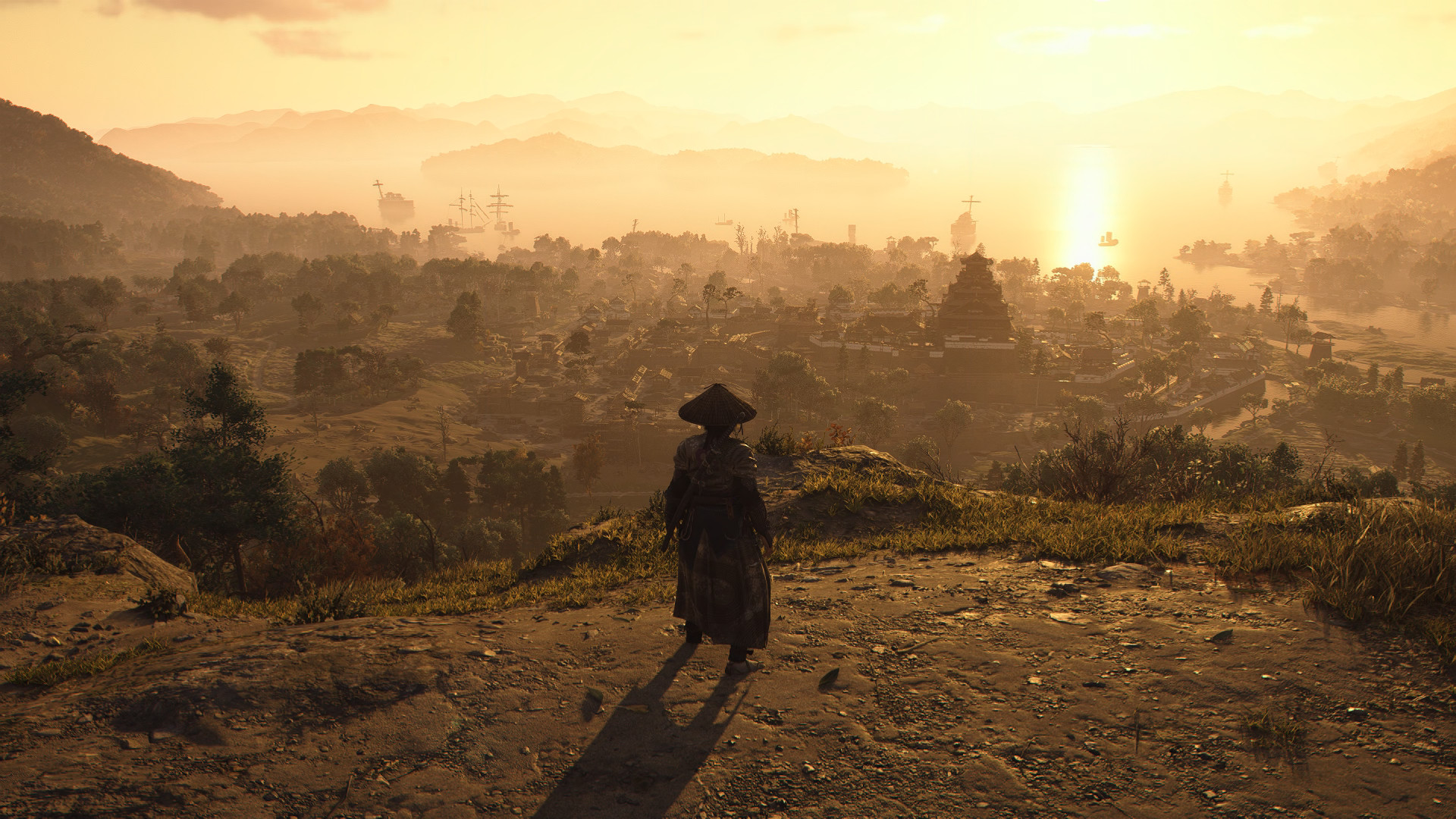
It’s a feeling that’s been hitting me hard as I play through Assassin’s Creed Shadows. Despite its reputation for repeating itself, it’s clear Ubisoft does think quite seriously about these things. Shadows does as much as it can to not simply be a checklist of activities to work through.
Quest locations are given as rough directions for you to follow, not just a glowing icon, encouraging you to engage with the map. The main story is a web of NPCs and enemies to be aided/murdered in an order of your choosing, instead of a linear series of siloed missions. Little events pepper the world, often simply playing out around you instead of being added to an endless log of sidequests.
And yet… none of it adds up to making the world itself truly interesting. It’s beautiful, and it’s wildly expansive, and a lot of the sneaking and battling you can do in its many enemy forts is good fun, but the basic formula of filling it with content still feels incredibly shallow. I’m climbing towers, collecting pointless stuff, and essentially still ticking repetitive tasks off a list, even if that list exists in my head rather than the game’s interface.
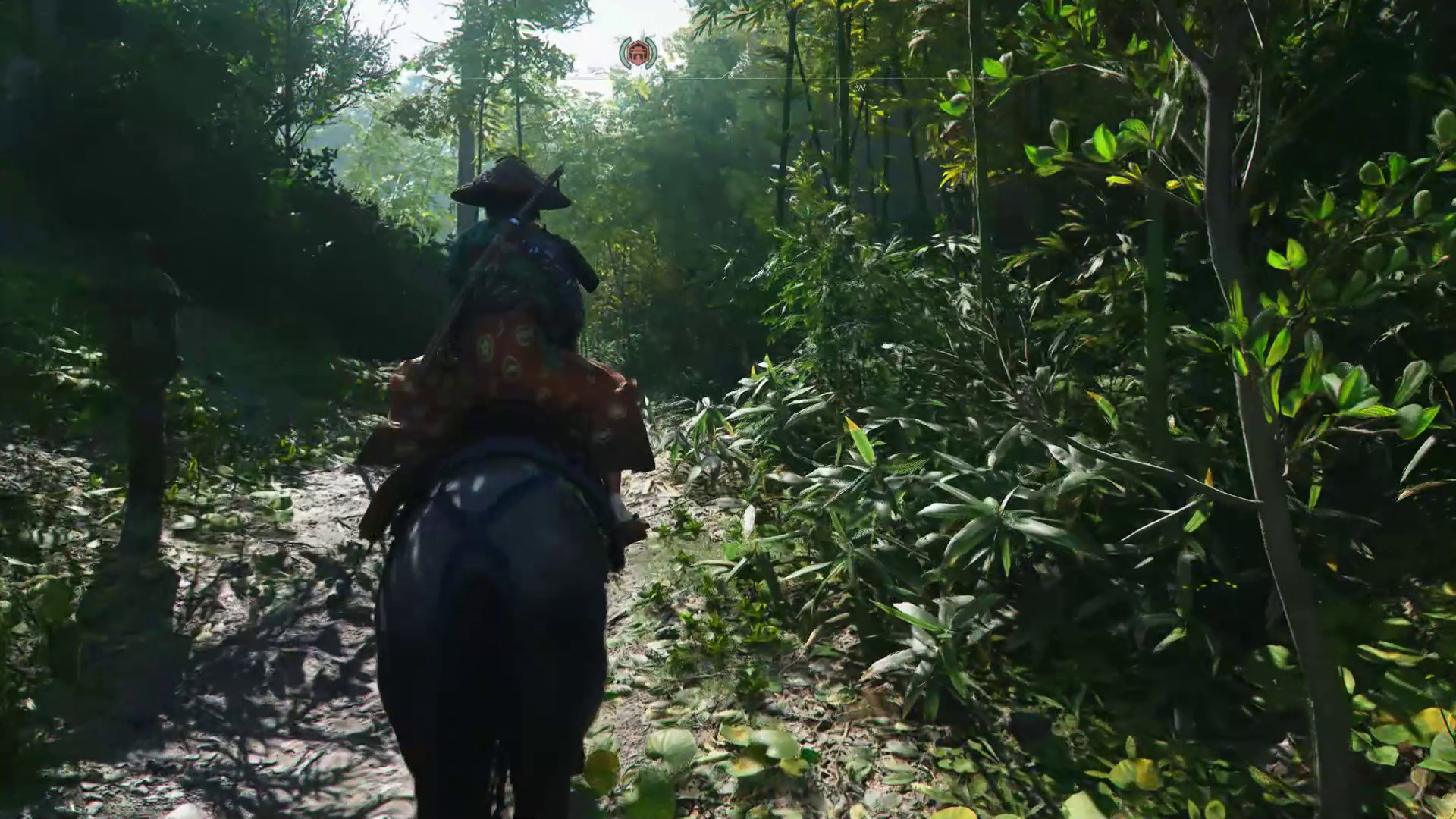
The world remains just a backdrop, and its scale only exists in service of making it feel like there’s a lot to do. Even features like the seasons changing as I play have almost no impact on how I move through the world or otherwise engage with it. The game isn’t really about the world, despite the clearly enormous effort put into making it as authentic and wide as possible—it’s about the handful of activities plonked into it and then duplicated across the expanse of it. It’s incredible breadth without any depth.
Shadows is a good recent example, but it’s a problem that’s endemic to these blockbuster releases. Just two months ago I was lamenting how lacking Spider-Man 2’s New York feels—swinging around buildings feels amazing, but outside of the main story, there’s nothing engaging to swing towards, and no sense of the city as anything but something to watch rushing past you as you traverse.
What the genre is desperately missing is a way to make the world itself the star of the show. And the heart-breaking thing is, a studio already cracked this problem 11 years ago—but its solution is probably now lost to us for a long time yet.
Super villains
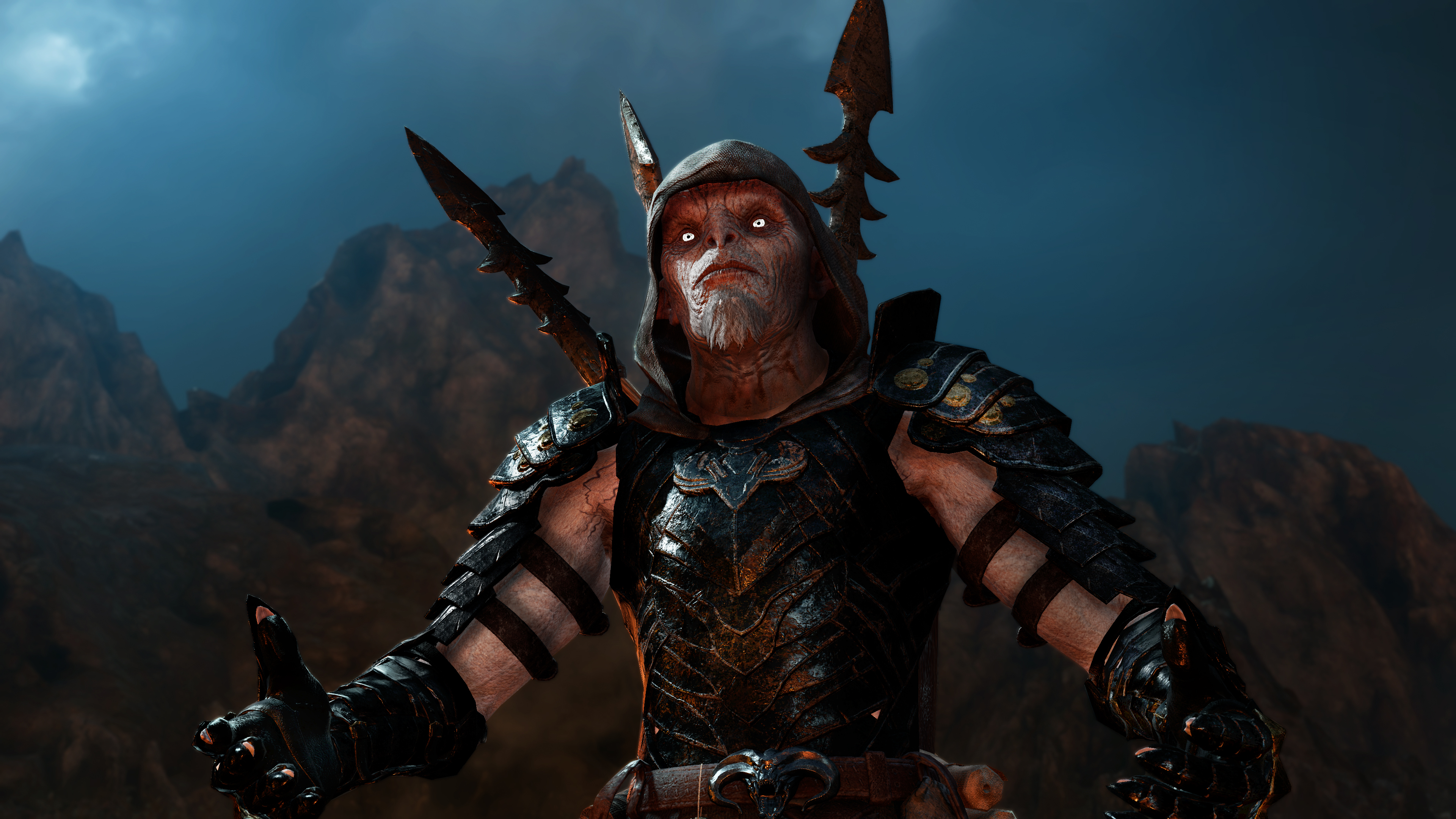
The Nemesis System first appeared in Middle-earth: Shadow of Mordor in 2014, and then again in a much expanded form in sequel Shadow of War in 2017, both developed by Monolith Productions. And games journalists haven’t stopped going on about it ever since.
If you’re not familiar, the long and short of it is: the open world is full of orc enemies led by procedurally generated named captains. Each is a combo of elements, bringing together one of a wide range of voices and personalities with a distinctive appearance and mechanical strengths and weaknesses that play into how you battle them. As the game progresses, the orcs rise and fall in power and rank as they enact plans and fight amongst themselves.
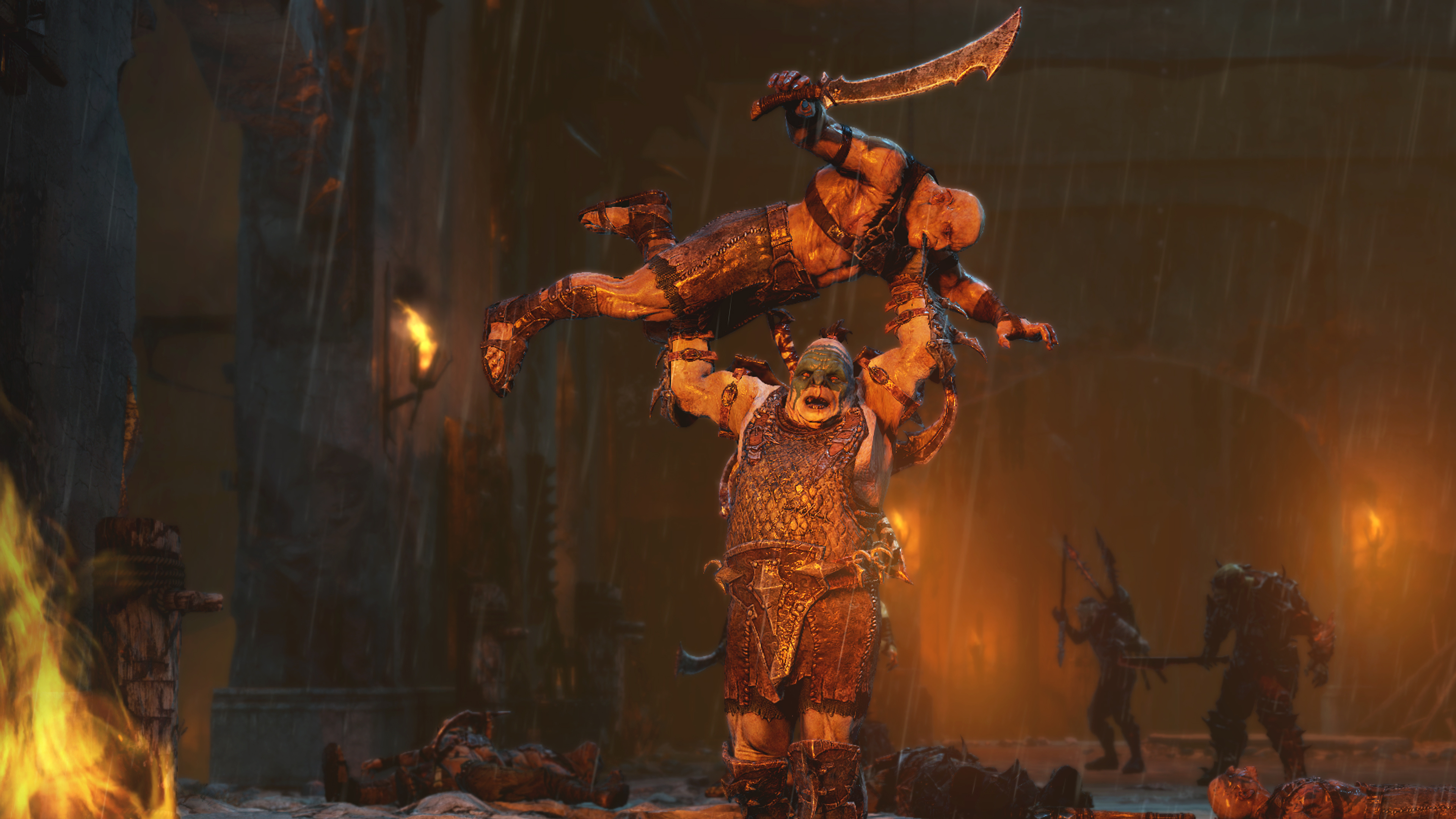
If you repeatedly humiliate an orc instead of killing him, it can drive him slowly insane with obsessive rage.
Talion—your character—is the wildcard, sowing chaos in the system. Orcs that kill him grow in power, and taunt him next time they meet. Even lowly, unnamed grunts will become captains if they’re the one to land the killing blow. In turn, when Talion defeats or kills orcs, the balance of power can be upset, allowing others to rise up the ranks—and eventually he can directly turn captains to his side, guiding their path through orc society and then setting them against their fellows.
The system is seasoned with remarkably detailed reactivity. If you defeat an orc with fire, he may return horrifically burned. If you repeatedly humiliate an orc instead of killing him, it can drive him slowly insane with obsessive rage. A mole you’ve planted in an enemy fort can, if left to their own devices too long, go native and turn on you. It’s constantly finding ways to recognise what you’re actually doing in the world and make it the focus of your story.
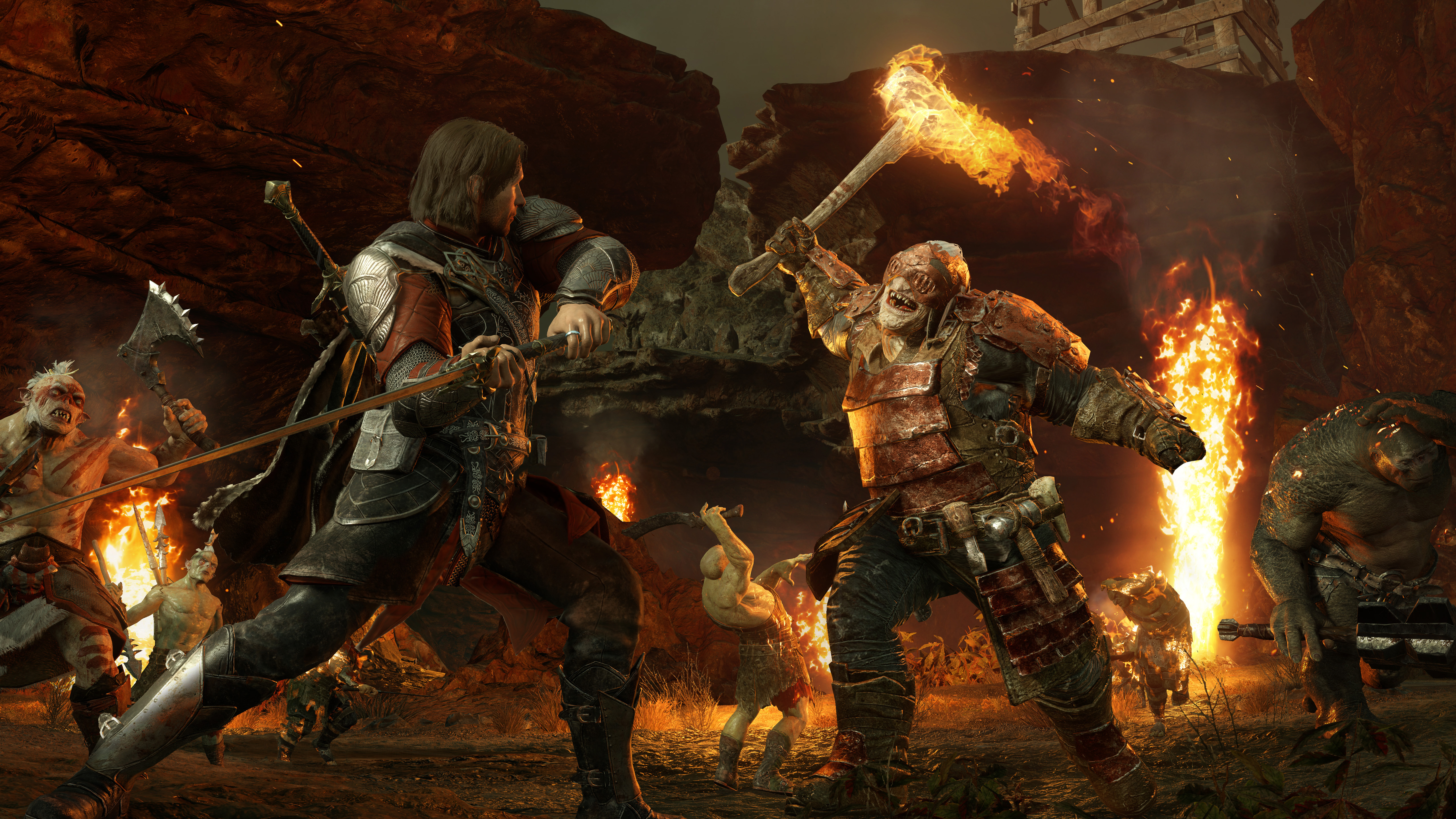
Neither game was flawless. They both still had filler side content and disconnected story missions, and in many ways their actual environments didn’t impress. But the Nemesis System was an endless story generator, turning every journey from point A to B into its own chaotic, emergent drama. Every player had their own unique story full of surprising turns of fate and engaging encounters—far more memorable than any of the carefully scripted content.
The Nemesis System was unique and frequently magical, but it did still feel like the draft of something revolutionary rather than its finished form. Even in the sequel it was a little too straightforward to exploit the system, and it struggled to scale with Talion’s own leaps up in power as he leveled. It’s hard to generate much drama once you learn how to simply avoid dying or ever letting an enemy escape alive.
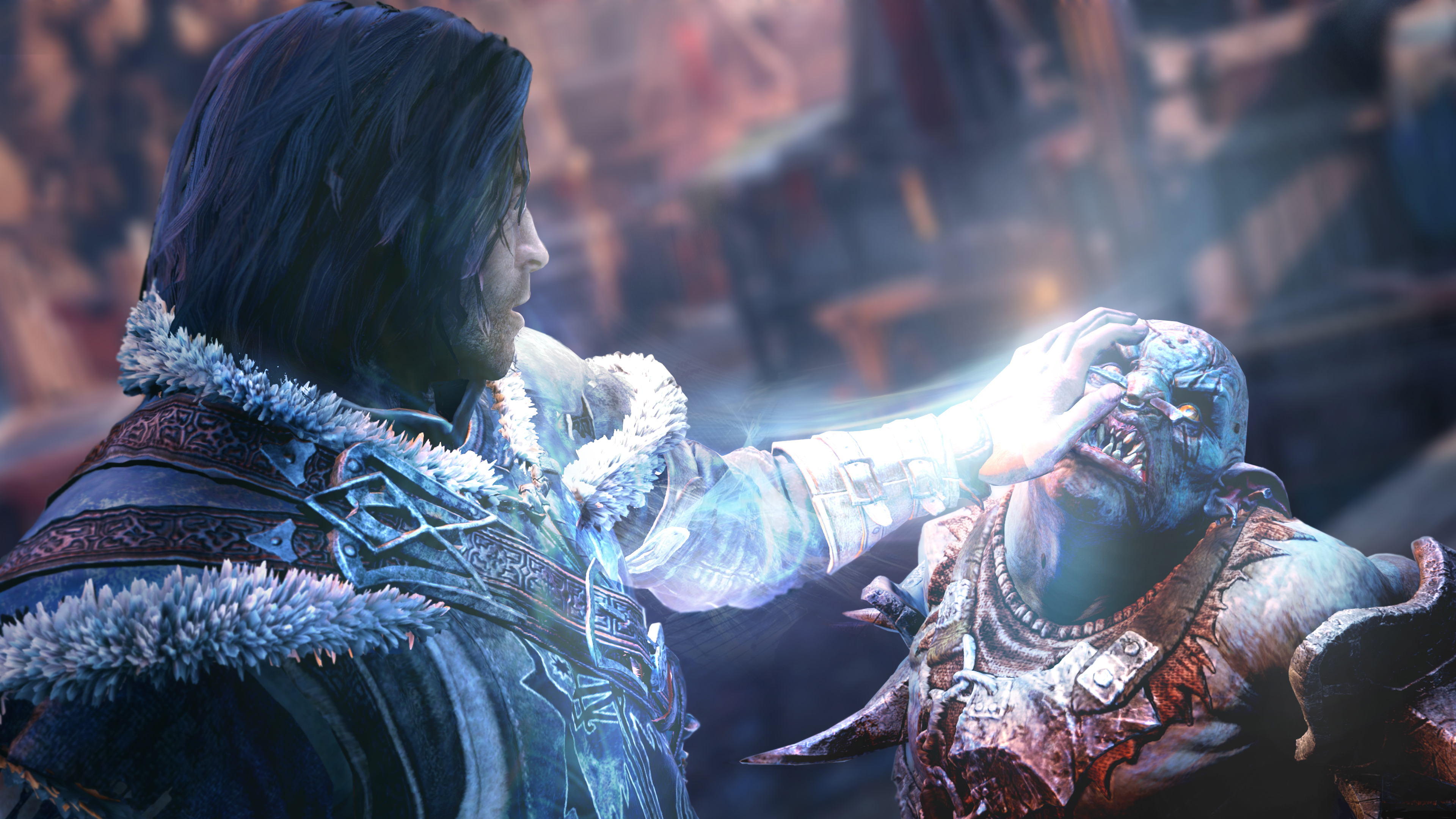
Even in Shadow of War’s lengthy endgame—essentially an extended campaign of conquest driven entirely by Nemesis System events—it always felt like the full potential of the idea was frustratingly just out of reach.
But at the time, it was simply taken as read that other developers would build on the idea, and we’d soon live in a utopia of Nemesis System-inspired open worlds. When, after a few years, no such imitators manifested, it quickly became clear that the idea was patented—Warner Bros was legally preventing its spread.
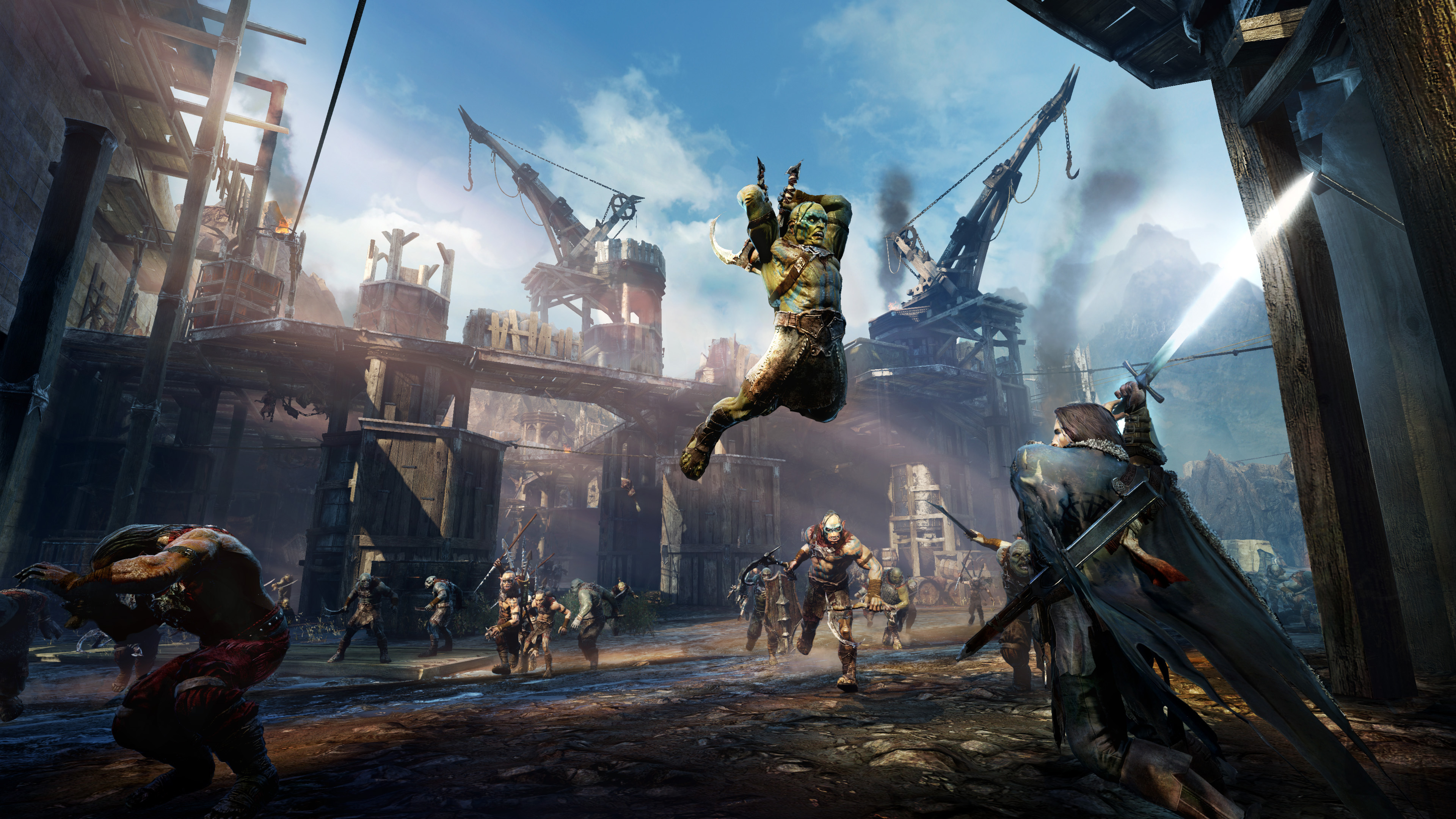
Oh well—at least Monolith still had a new game in development. For years it was working on a Wonder Woman project, and it was easy to dream that it might pit the Amazonian warrior against a world of procedurally-generated supervillains, taking the Nemesis System to new heights.
That is, until Warner Bros unceremoniously cancelled the game and closed the studio earlier this year, as part of its ongoing campaign across the company to both cut costs and obliterate fan good will. At a time when the Nemesis System feels more needed than ever, the final nail has been hammered into its coffin. With WB only growing more conservative with its games division, even the slim hope that they might hand the idea off to another of their studios to play with seems futile.
Orc-ward
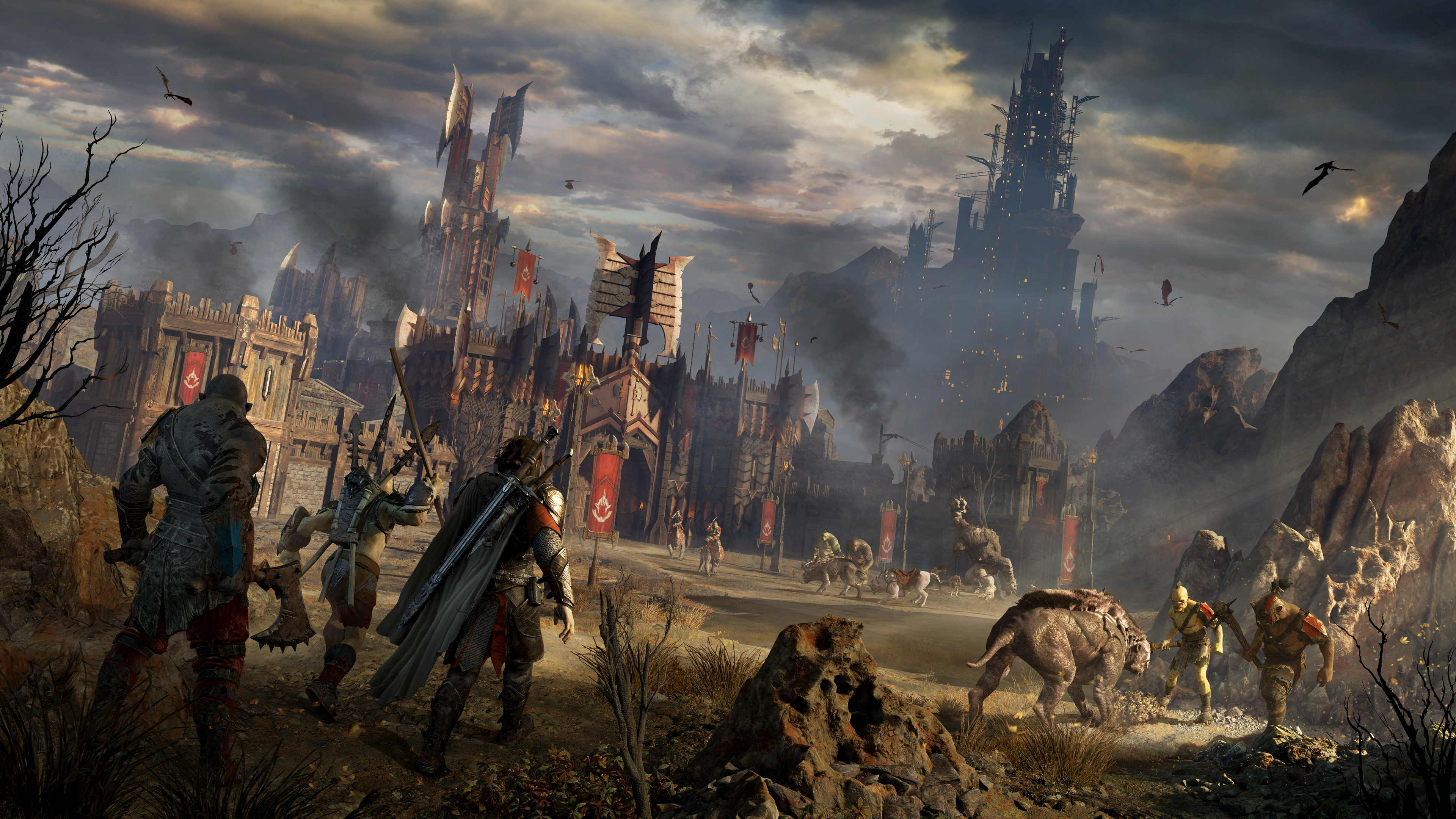
It’s heart-breaking, because more and more I think what Monolith discovered was exactly the game design path the entire open world action genre should be on today.
How much more exciting and alive would Shadows’ world feel if I was actually building relationships with the warlords and factions that rule it? Wouldn’t Spider-Man 2’s New York have far more reason to exist if it was inhabited by a network of criminal gangs to interact with? I’d take that kind of emergent storytelling over scouring the map for 100 hidden collectibles in a heartbeat.
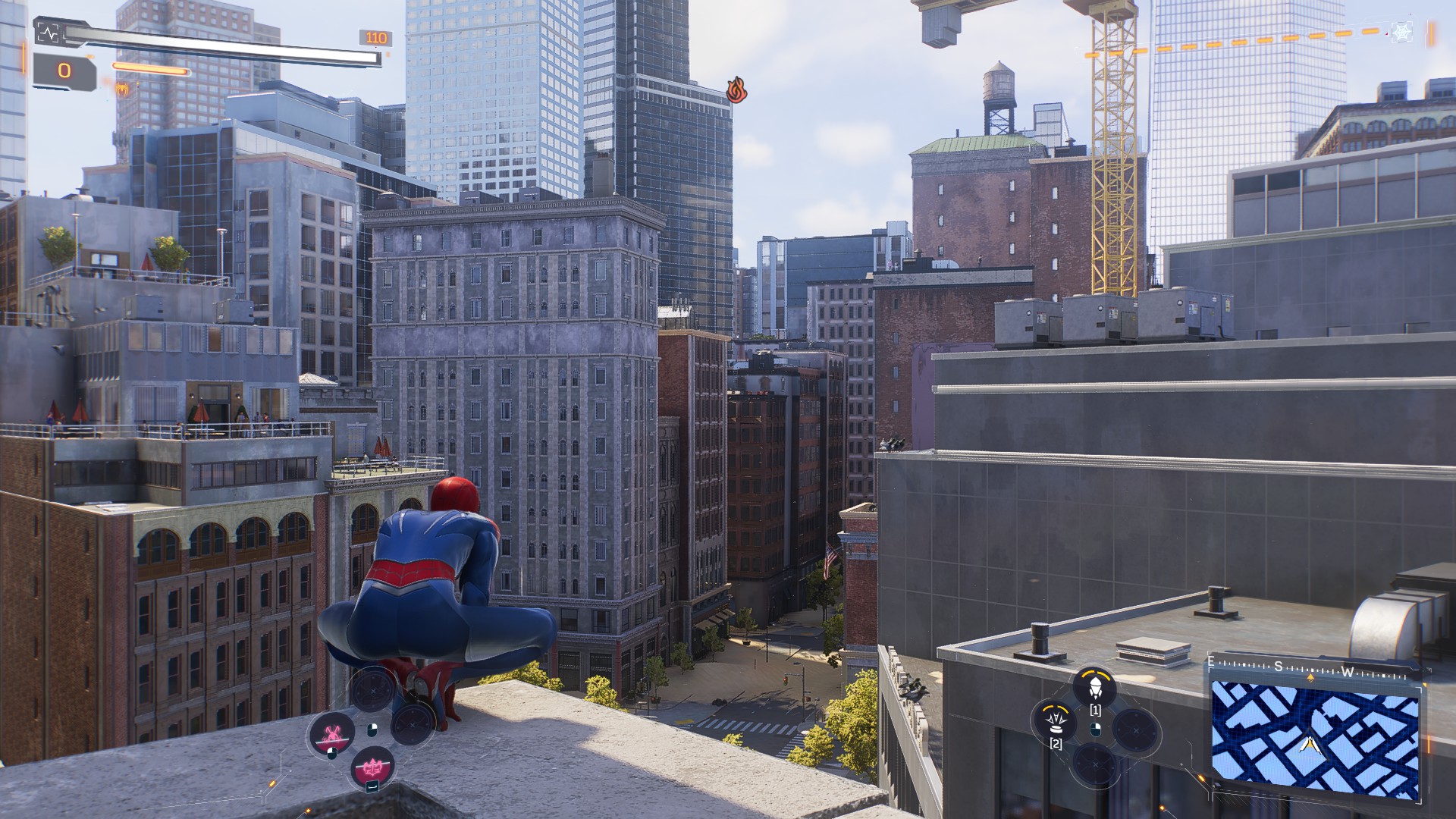
It would be easier said than done, of course—the Nemesis System was a bit of an engineering marvel, and certainly replicating it wouldn’t have been simple. But these games already aim enormous resources and manpower at elements that end up being far less consequential—I’d happily sacrifice Shadows’ entire base-building, randomised loot, and even dual protagonist systems for something that imbued it with more actual life and personality.
And if the Nemesis System is off the table, maybe the answer is to try and find the thing that could replace it. I often think of Watch Dogs: Legion—certainly a failed experiment, but its core idea (filling the world with distinct NPCs, any of which could be recruited to your team and become a playable character) was fascinating.
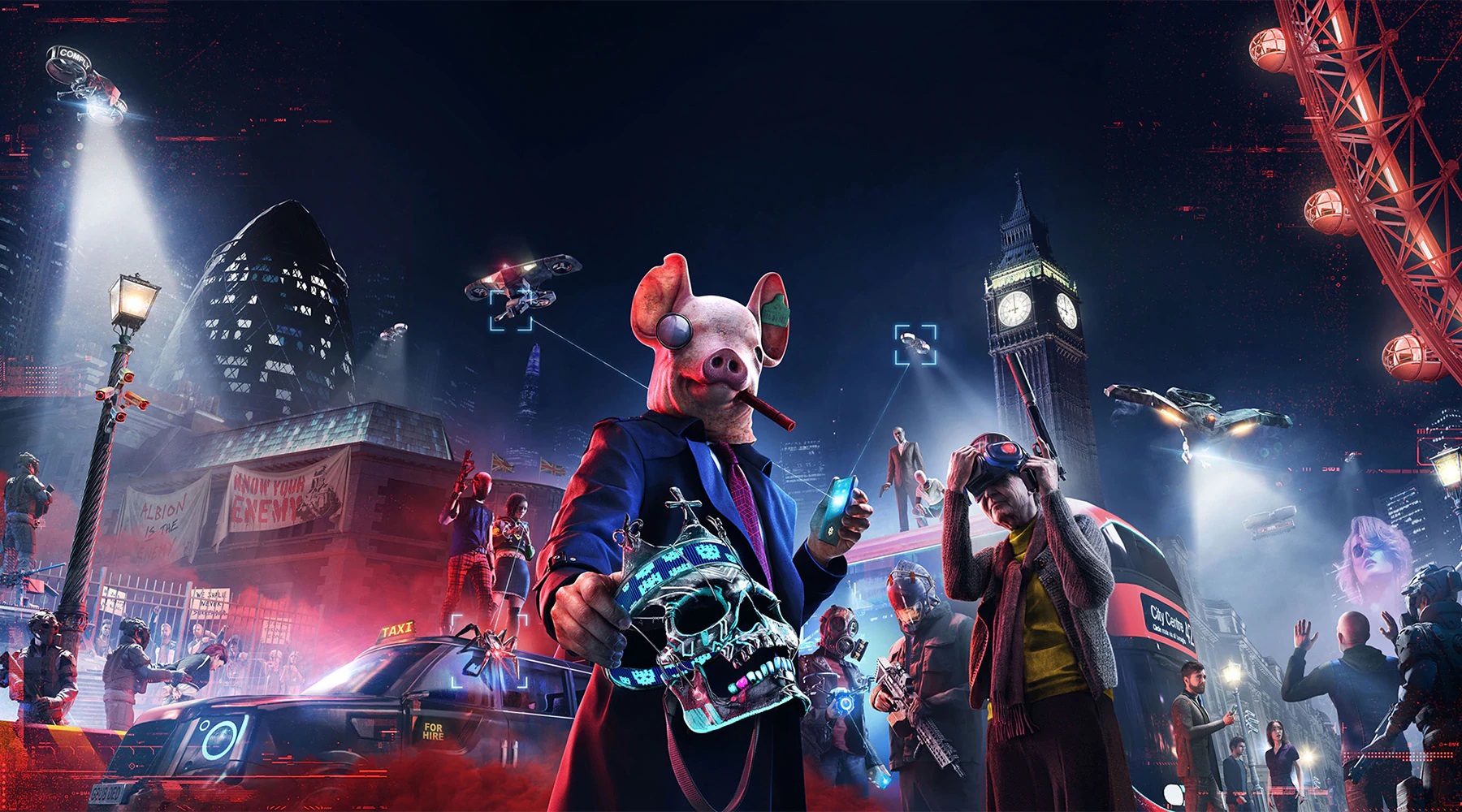
It proved that there is a spirit of experimentation still alive at Ubisoft that could continue to be nurtured.
Mundane civilians you’d normally walk past without even noticing became a living part of the gameplay, and elements like their job, life experiences, and network of relationships could impact how you approached problems and moved through the world. It was probably too ambitious—the final product was sadly dull and off-putting for reasons too numerous to get into here—but it felt like the first draft of something that could be amazing. And it proved that there is a spirit of experimentation still alive at Ubisoft that could continue to be nurtured.
With blockbuster videogames more expensive than ever, and the industry seemingly more unstable, studios understandably err on the side of risk avoidance for the most part, repeating the same basic formulas that have succeeded in the past. But the shine has worn off many of these conventions of open world design, and we’re desperately in need of innovation before people simply tire of the genre completely. If the Nemesis System can’t be the answer, it’s time to find something else.
Source link











Add comment